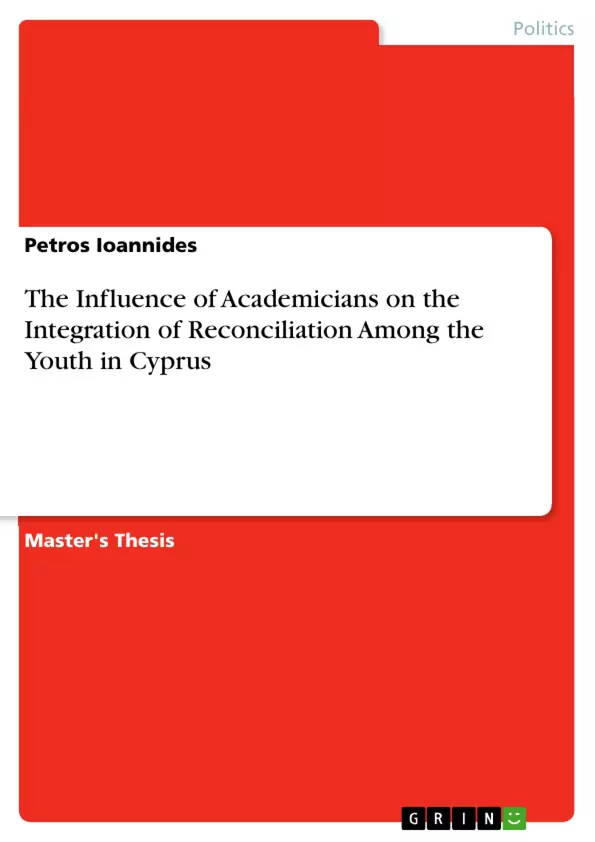Disagreements, struggles and other countless forms of conflict, in their sketchiest intelligence and appreciation, are critical fragments of individual anthropological continuation. The master thesis investigates, studies and exposes actualities and concerns in one of the several tragedies of violent conflict that occurred in the decade between 1967-1977. The divergence amongst the Greek-speaking and Turkish-speaking Cypriots is unmoving merely and incompletely ‘resolute’ nowadays.
The island of Cyprus has a lengthy and prolonged past of indigenous forcefulness and chaos. Through the preceding fifty years, the country has experienced uncertainty, settler and following-settler struggles, conflicting domestic nationalism, violence as well as armed conflict among several of the foremost cultural clusters, invasion, ethnic separation, and vast numbers of refugees. This is what characterizes the ‘Cyprus conflict’ after the establishment of the Republic of Cyprus in 1960 and the critical time of 1974 as explained by the Greek-speaking Cypriot.
The exploration of the core diverging disputes amongst Turkish-speaking and Greek speaking Cypriots in this section validates that, their topographical discrimination and isolation, from the time of the initiation of the conflict and its occurrences, is not the unhealthiest happening arising. The mental and emotional estrangement between the conflicting ‘societies’, furthermost noticeable amongst the young citizens is demonstrated in every single phase of collective and constitutional existence. Uncertainties deep rooted to their insecurity on survival, forfeiture of confidence and anticipation of perseverance, nationalism oppression, unattended chronological accusations in addition to unsettled sufferings and distresses are continuously existent.
The central exploration view designed and preserved even further diagnostically and methodically in the literature review, is encircling advanced degree culture and its prospect of whether it can undertake and exploit analytical responsibility and function in conflict resolution and settlement in the island of Cyprus revealed as an aftereffect of the structured - and with numerous paths - reconciliation determination in the country.
Inhaltsverzeichnis (Table of Contents)
- Chapter 1 Nature of Conflict
- 1.1 - Background
- 1.2 Issues and Goals
- 1.3 Conflict Map and Narrative
- 1.3.1 Actors
- 1.3.2 Structures
- 1.3.3 Dynamics
- 1.4 – Literature Review
- 1.5 - Framework/Model
- 1.6 - Literature Reframing the Research Question
- Chapter 2 - Data
- 2.1 Methodology
- 2.2 Data Collection
- 2.3 Data Analysis
- 2.4 Data Interpretation
- 2.5 - Bridge to Intervention Strategies
- Chapter 3 - Intervention Strategies
- 3.1 Needs Overview
- 3.2 Rationale for Interventions
- 3.3 - Project Addressing Needs
- 3.4 Need: Acknowledgement
- 3.5 Need: Nationalism
- 3.6 Need: Academic Culture
- 3.7 Benchmarks and Evaluation
- Chapter 4 – Networking and Sustainability
- 4.1 Introduction
- 4.2 The Network
- 4.3 - The Interventions and Challenges to Sustainability
- 4.4 Strategies for Sustainability
Zielsetzung und Themenschwerpunkte (Objectives and Key Themes)
This master thesis examines the impact of academics on the integration of reconciliation among the youth in Cyprus. It specifically focuses on the conflict between Greek-speaking and Turkish-speaking Cypriots, which began in the 1960s and escalated in 1974. The thesis explores the historical context of the conflict, analyzes the current situation, and proposes intervention strategies to promote reconciliation and bridge the divide between the two communities.
- The historical context and evolution of the Cyprus conflict.
- The role of academics in promoting reconciliation and peacebuilding.
- The impact of the conflict on the mental and emotional well-being of the youth.
- The development and implementation of intervention strategies to address the needs of the youth.
- The challenges and opportunities for achieving sustainable peace in Cyprus.
Zusammenfassung der Kapitel (Chapter Summaries)
Chapter 1 provides an overview of the Cyprus conflict, outlining its historical background, key actors, and underlying issues. It also examines relevant literature and establishes a framework for the research. Chapter 2 delves into the methodology and data collection process, including the analysis and interpretation of the gathered information. Chapter 3 presents a comprehensive analysis of the needs of the youth in Cyprus, outlining the rationale for specific intervention strategies and a detailed project addressing those needs. Chapter 4 focuses on the development of a network to support the implementation of these strategies, exploring challenges to sustainability and proposing solutions.
Schlüsselwörter (Keywords)
This master thesis centers around the themes of reconciliation, peacebuilding, conflict resolution, youth development, and the Cyprus conflict. It explores the role of academics in promoting understanding and cooperation between the Greek-speaking and Turkish-speaking communities in Cyprus. Key concepts include intervention strategies, sustainable peace, and the impact of historical grievances on the current situation. The research draws upon various academic disciplines, including conflict studies, peace psychology, and political science.
Frequently Asked Questions: Reconciliation in Cyprus
What is the central focus of the Cyprus conflict research?
The research focuses on the influence of academicians on integrating reconciliation among the youth in Cyprus, specifically addressing the divide between Greek-speaking and Turkish-speaking communities.
What are the historical roots of the divergence in Cyprus?
The conflict escalated significantly between 1967 and 1977, characterized by ethnic separation, invasion, and deep-rooted insecurities regarding survival and nationalism since the 1960s.
How does the conflict affect the youth in Cyprus today?
Cypriot youth often experience mental and emotional estrangement, fueled by unattended historical grievances, nationalism, and a lack of confidence in long-term peace.
Can higher education play a role in conflict resolution?
Yes, the thesis explores how academic culture can take analytical responsibility and function as a bridge for cooperation and reconciliation through structured intervention strategies.
What is the "Aktion Ritterbusch" mentioned in related historical contexts?
While not central to the Cyprus modern thesis, it refers to the historical mobilization of humanities for war efforts, contrasting with modern peacebuilding academic roles.
- Citar trabajo
- Petros Ioannides (Autor), 2015, The Influence of Academicians on the Integration of Reconciliation Among the Youth in Cyprus, Múnich, GRIN Verlag, https://www.grin.com/document/344378



